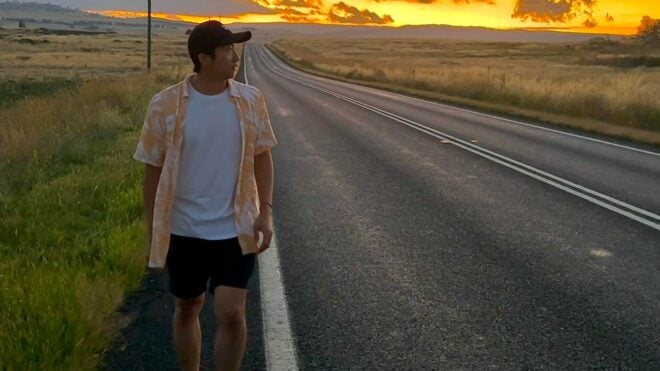History is always fascinating when you come face-to-face with it.
It gives you a little jolt of perspective and reminds you that the things you take for granted every day weren't always there, and that what was considered everyday life 100 years ago seems strange and foreign today.
But sometimes, history can seem a bit distant. We can peer into black-and-white photographs, for instance, but their lack of color makes them seem static. It can be hard to imagine all those shades of gray as a living, moving world.
And that's where Dynamichrome comes in. Headed by Jordan Lloyd, the project aims to digitally colorize black-and-white photographs to offer a real-color version of history — one that seems closer to us.
To be clear, the original photo prints, the hard copies, are not being altered. Lloyd and his team are creating colorized versions of them to show the vibrance of the world that the technology of the time simply couldn't capture.
Colorizing photos is a practice almost as old as photography itself, as these beautiful hand-colored photos of Native Americans from the late 180os show. The Dynamichrome team is doing the same thing, but using modern technology as well as artistic flair.
Check out some of their work below, as well as the black-and-white originals, and see which you like best!
[H/T: Twisted Sifter]
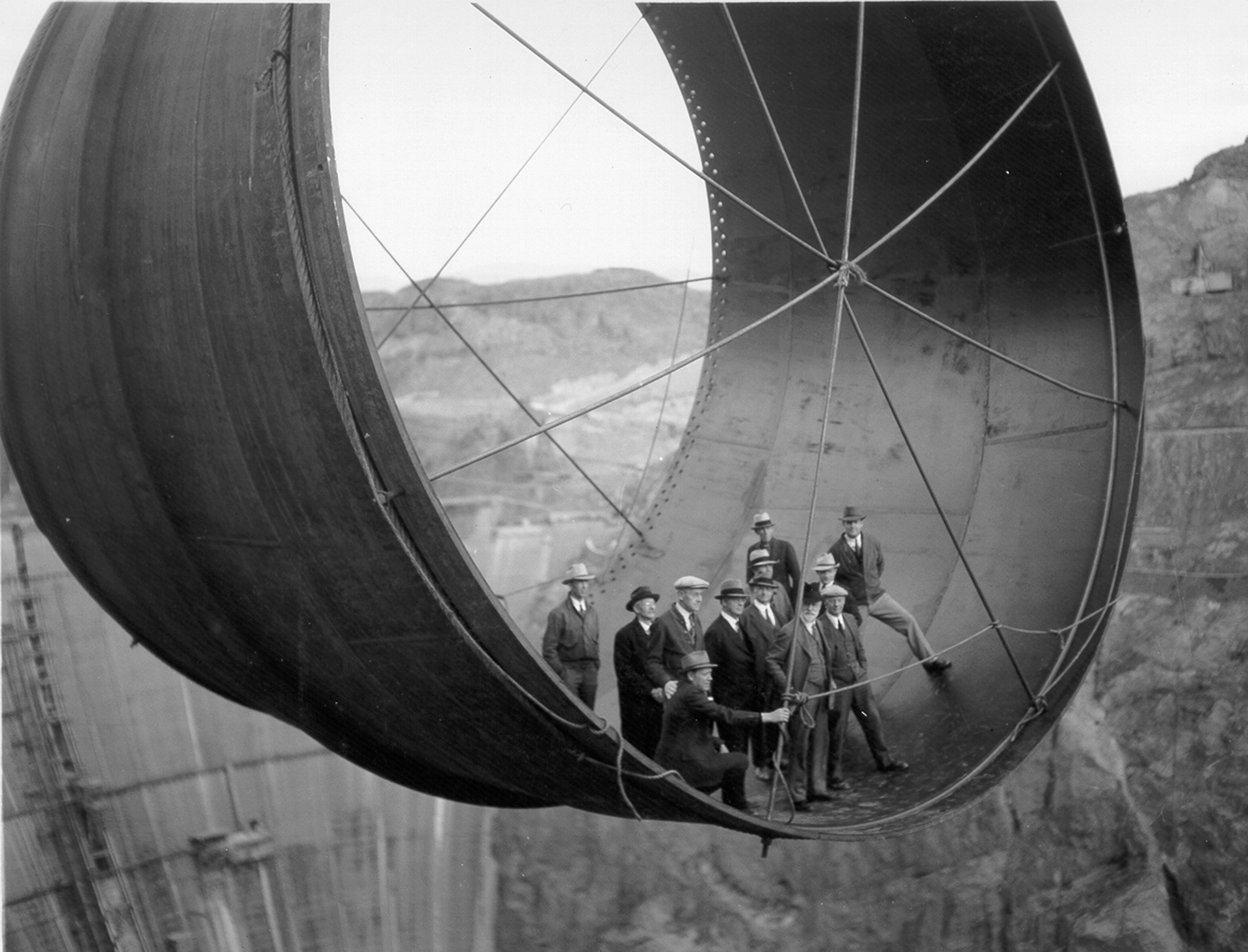
Dynamichrome takes historical photos like these and digitally recolors them.
While it might seem like a small task, it gives the photos a jolt of new life that makes them seem like you could step right back in time.
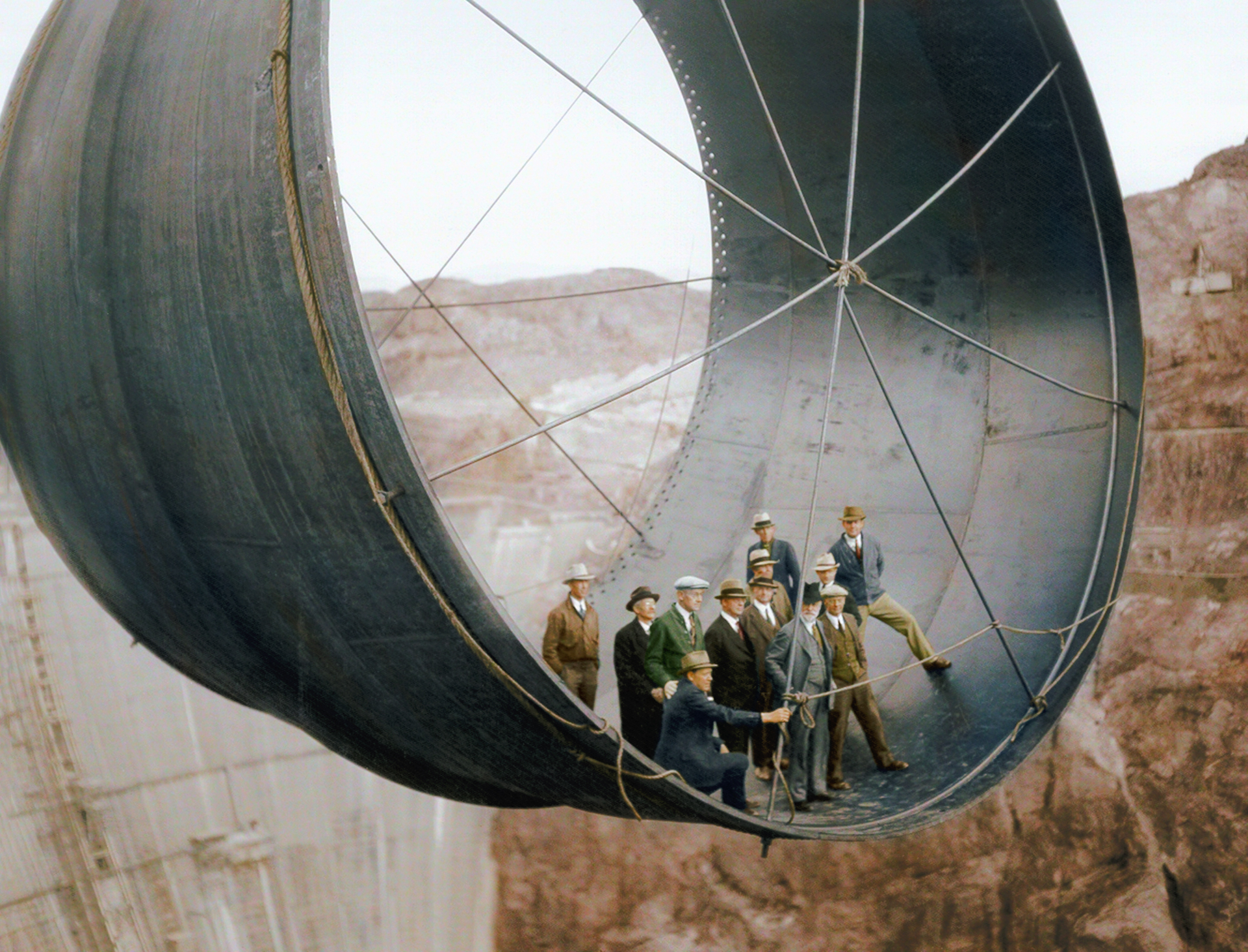
The colors are carefully chosen to match the materials, landscape, and even clothing of the times.
This photo shows the Hoover Dam under construction in 1935.
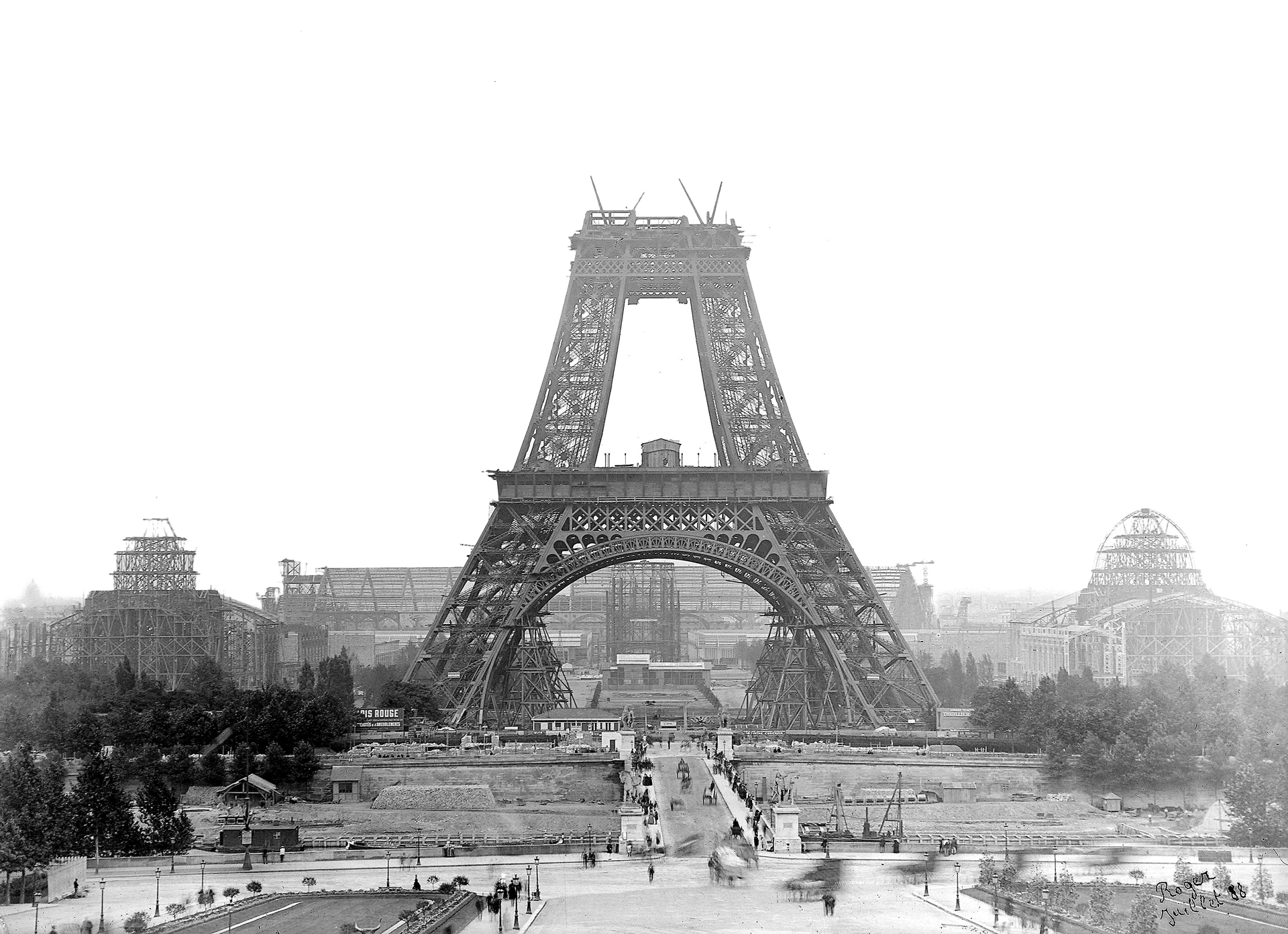
While the black and white photos are of course stunning, like this one of the Eiffel Tower under construction in 1888, the colorized photos can actually reveal even more information.
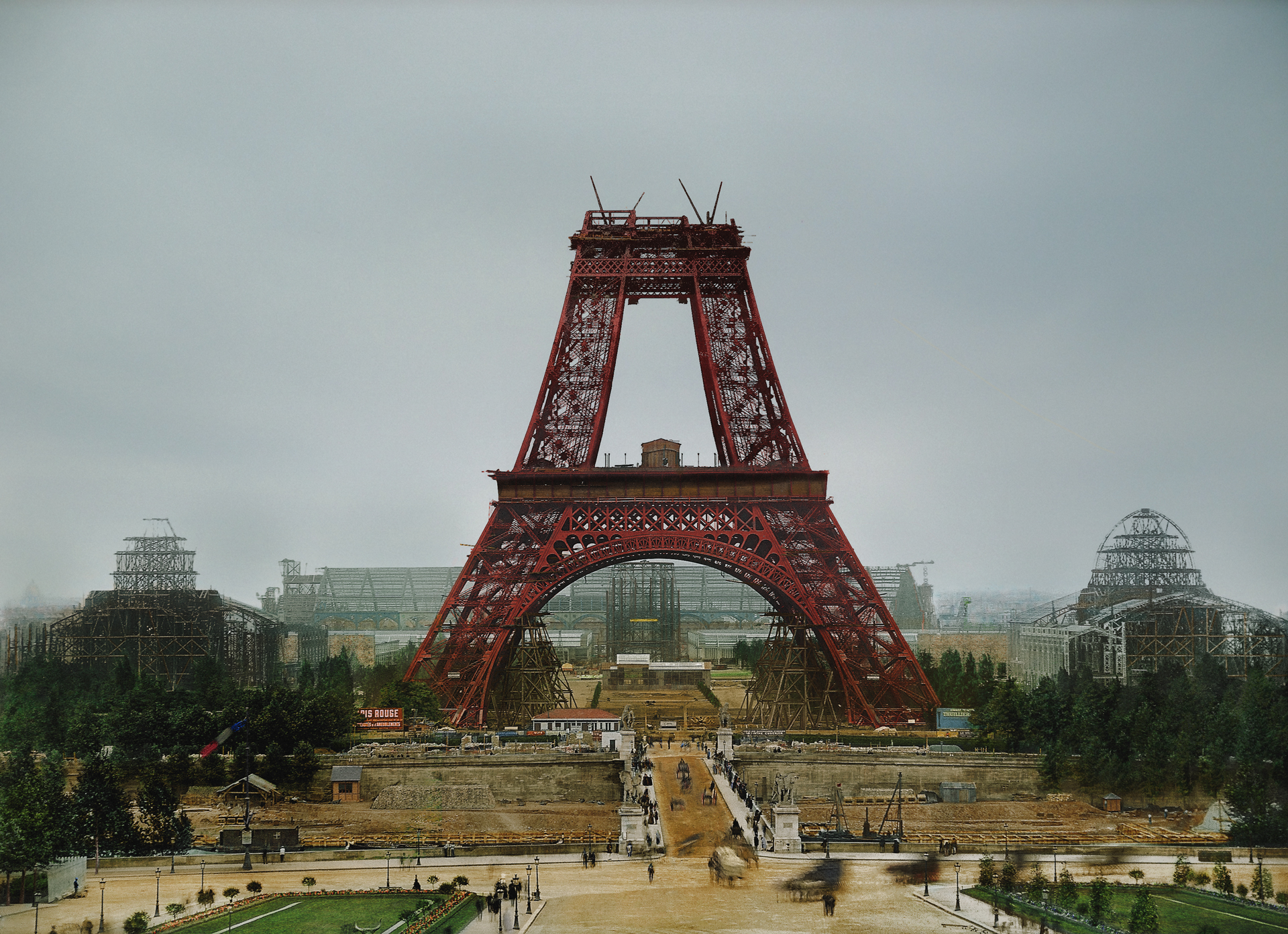
For example, did you know the Eiffel Tower was painted red?
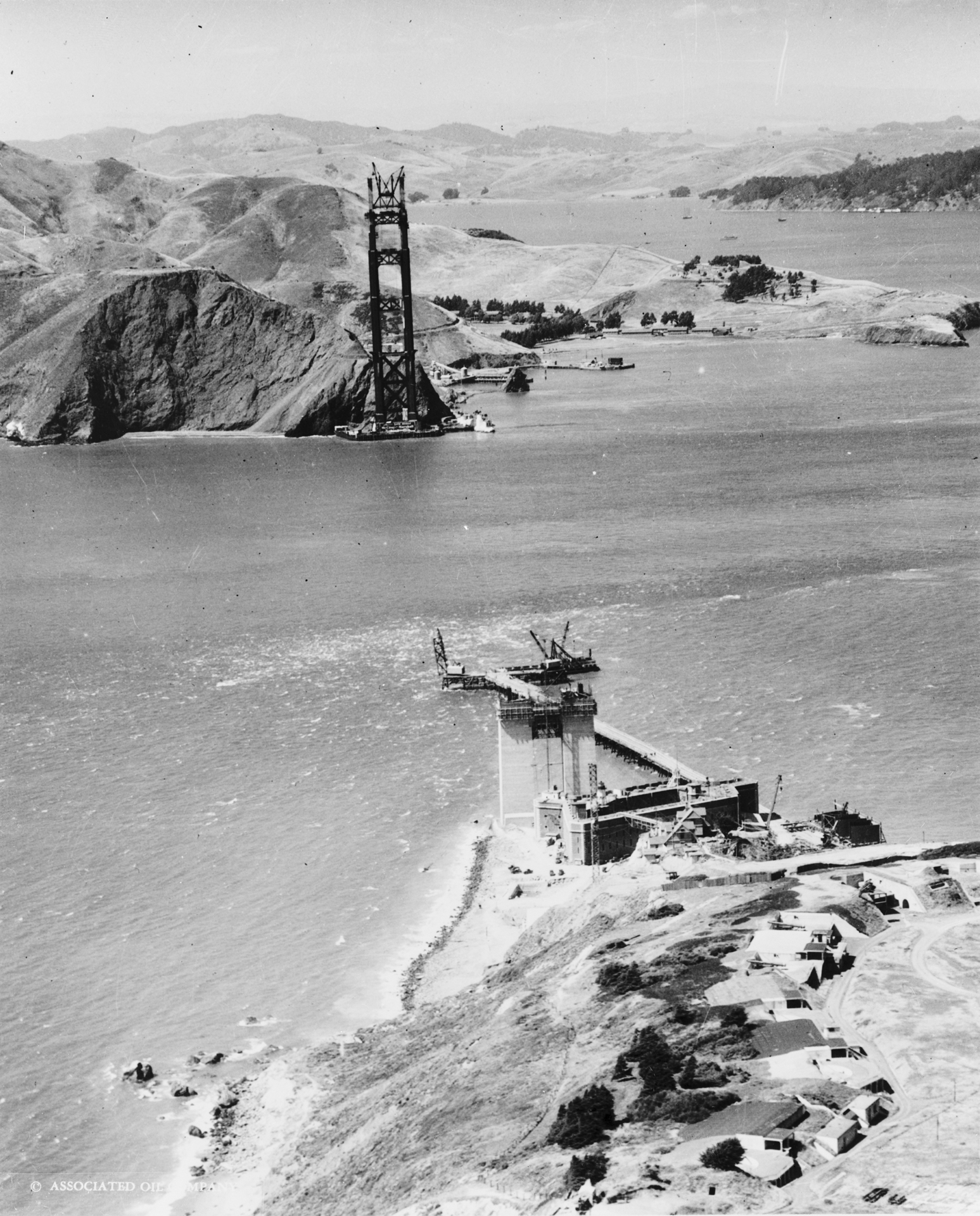
The Dynamichrome team is putting together a book of their work called Paper Time Machine.
The photos were selected by Retronaut curator Wolfgang Wild, and digitally colored by Dynamichrome's Jordan Lloyd.
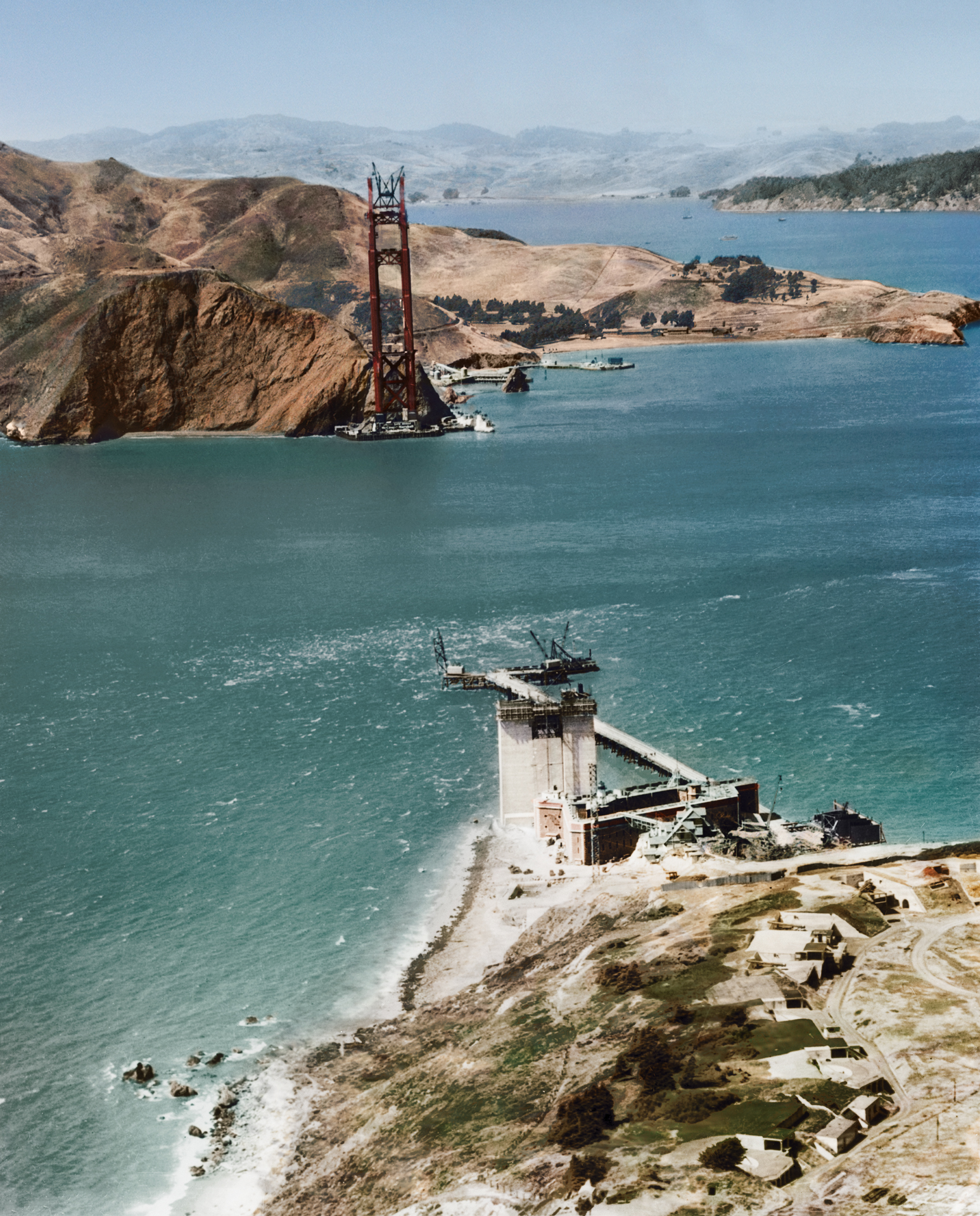
Lloyd carefully fact-checks each element of the photos to make sure the colors are historically accurate, for example, the exact color of the Golden Gate Bridge when it was built in 1934.
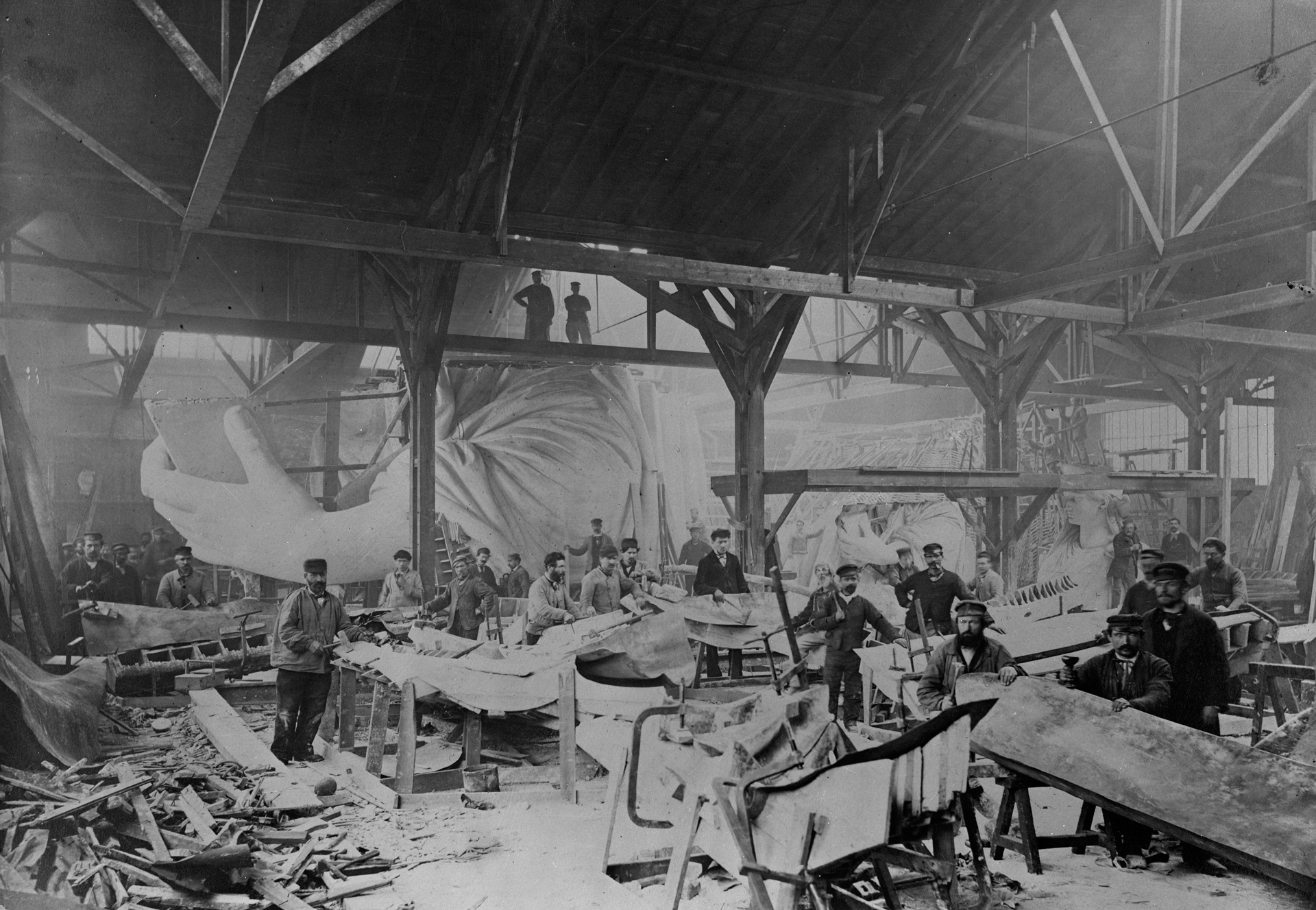
And by presenting the colorized and black-and-white versions side by side, readers can see the different details that appear in the different versions.
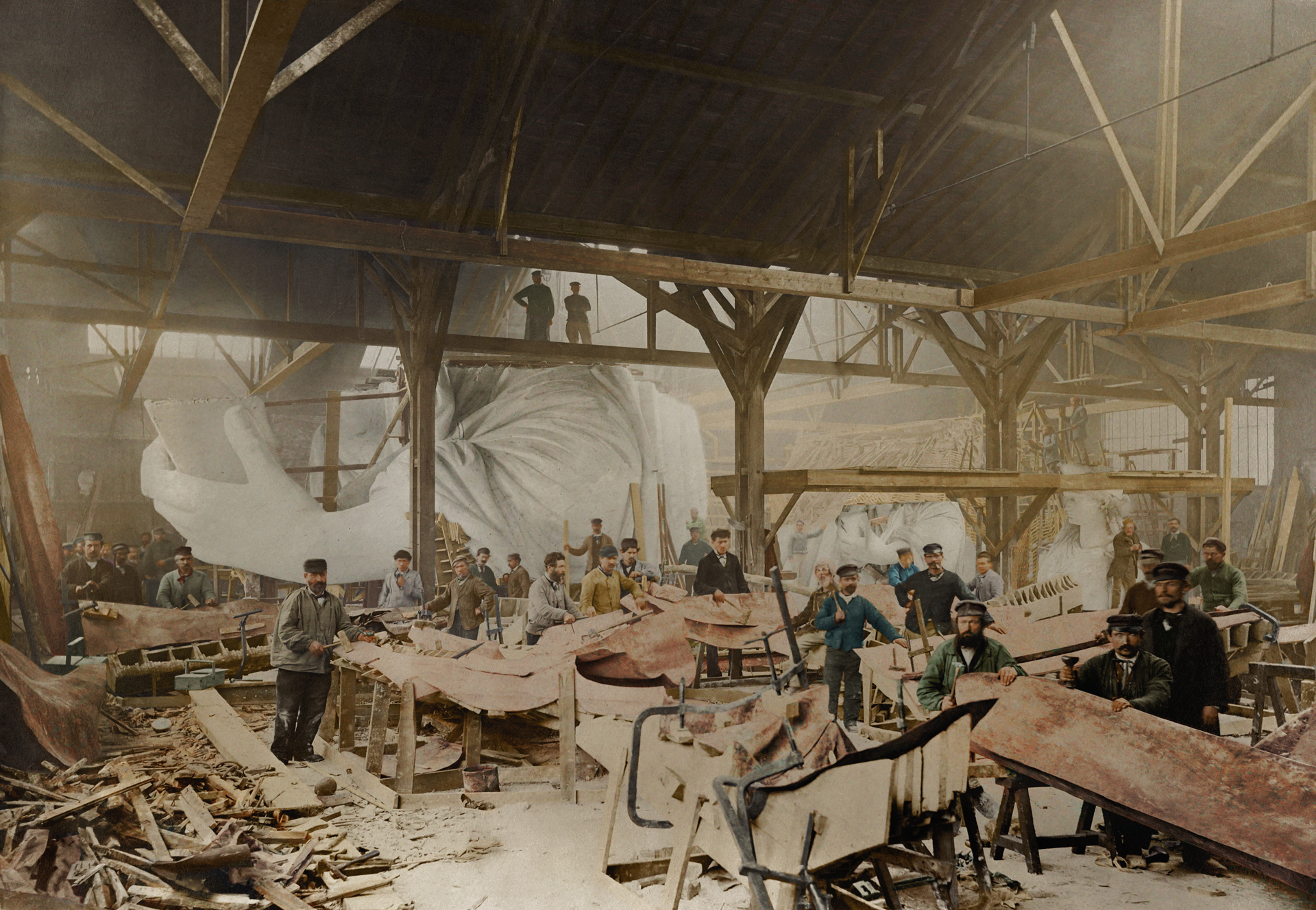
This photo from 1882 shows the workshop in Paris where the Statue of Liberty was built. You can see the massive white plaster casts in the background that would be used to form the copper sculpture.
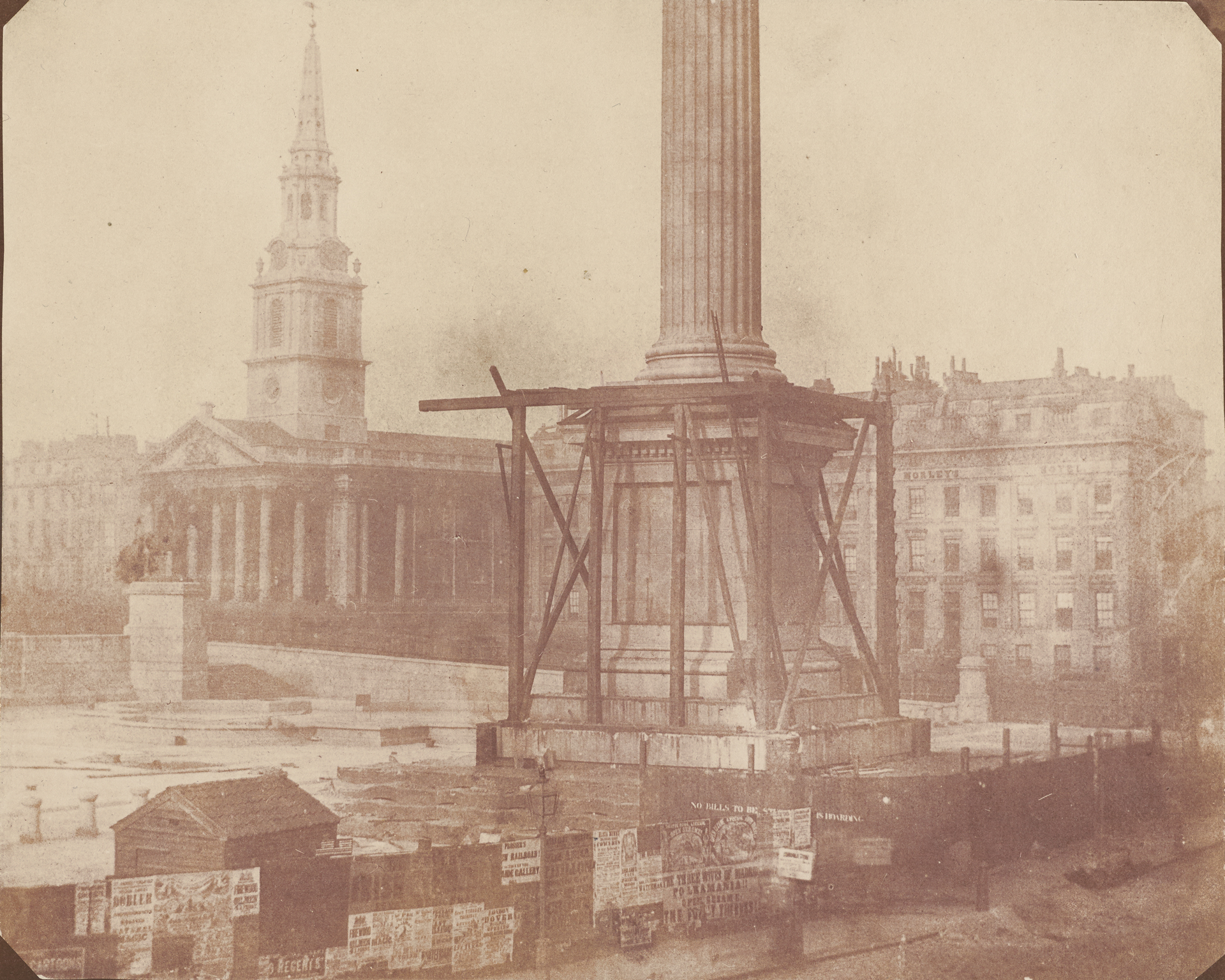
The team's goal is to create a version of the photo the way the original photographer would have actually seen the events.
This 1843 photo of Nelson's Column in London seems hazy and impressionistic in monochrome…
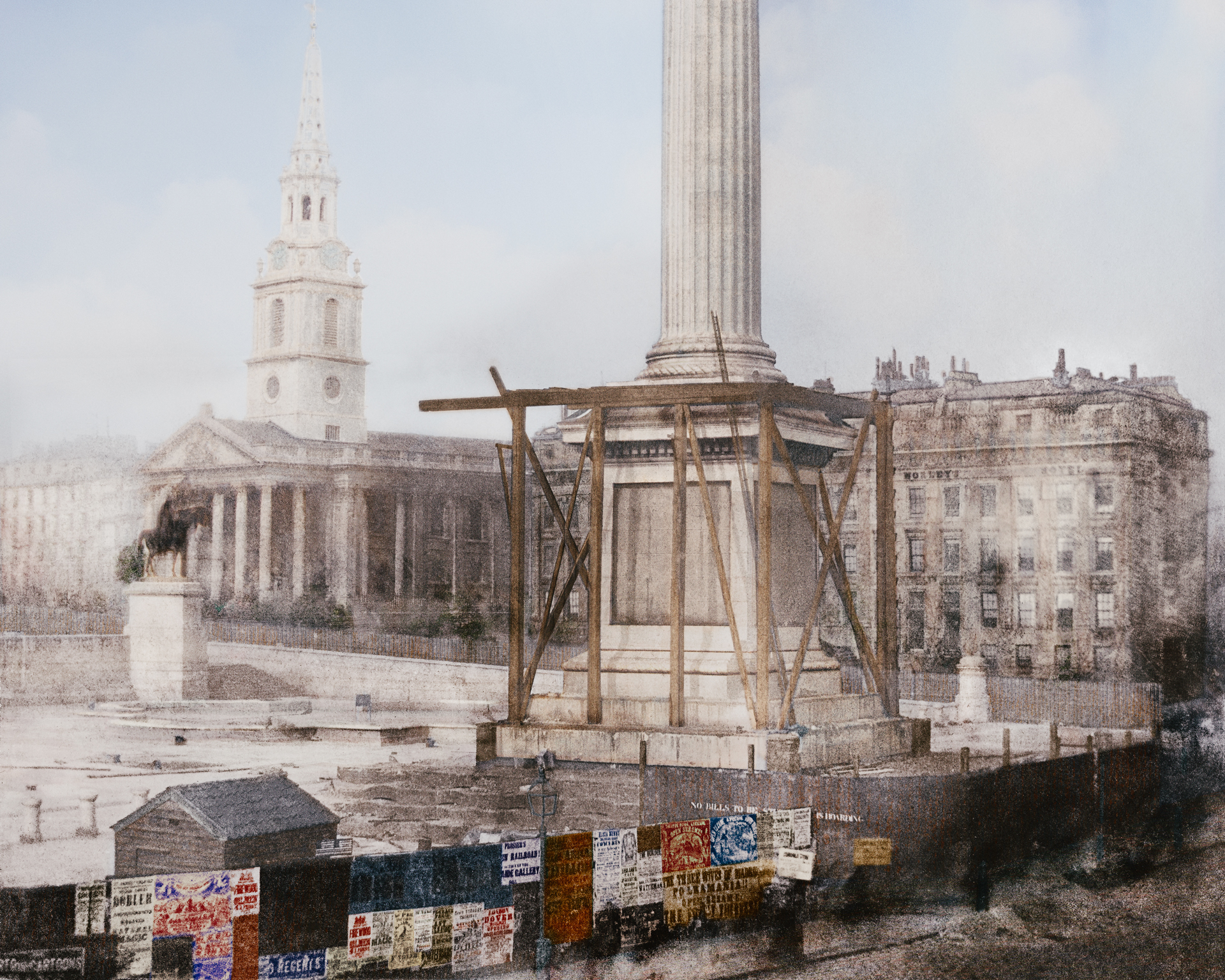
…but comes to life in color. In addition, you can see the bright posters near the bottom of the frame, giving us a glimpse into the everyday life of 1840's London.
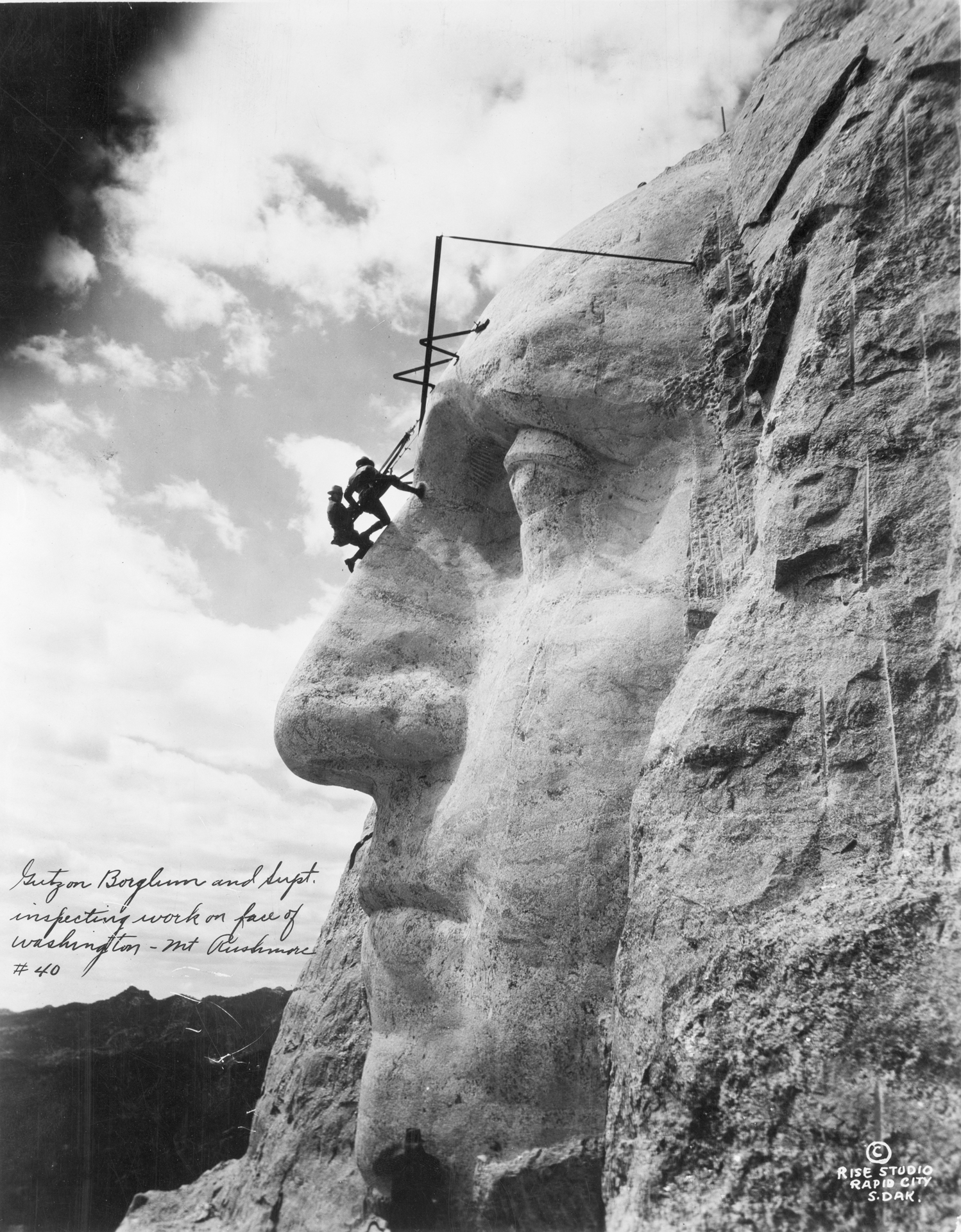
Other times, the colorizing gives us a charmingly human angle to a photo. This image shows the carving of Washington's face in Mount Rushmore in 1932.
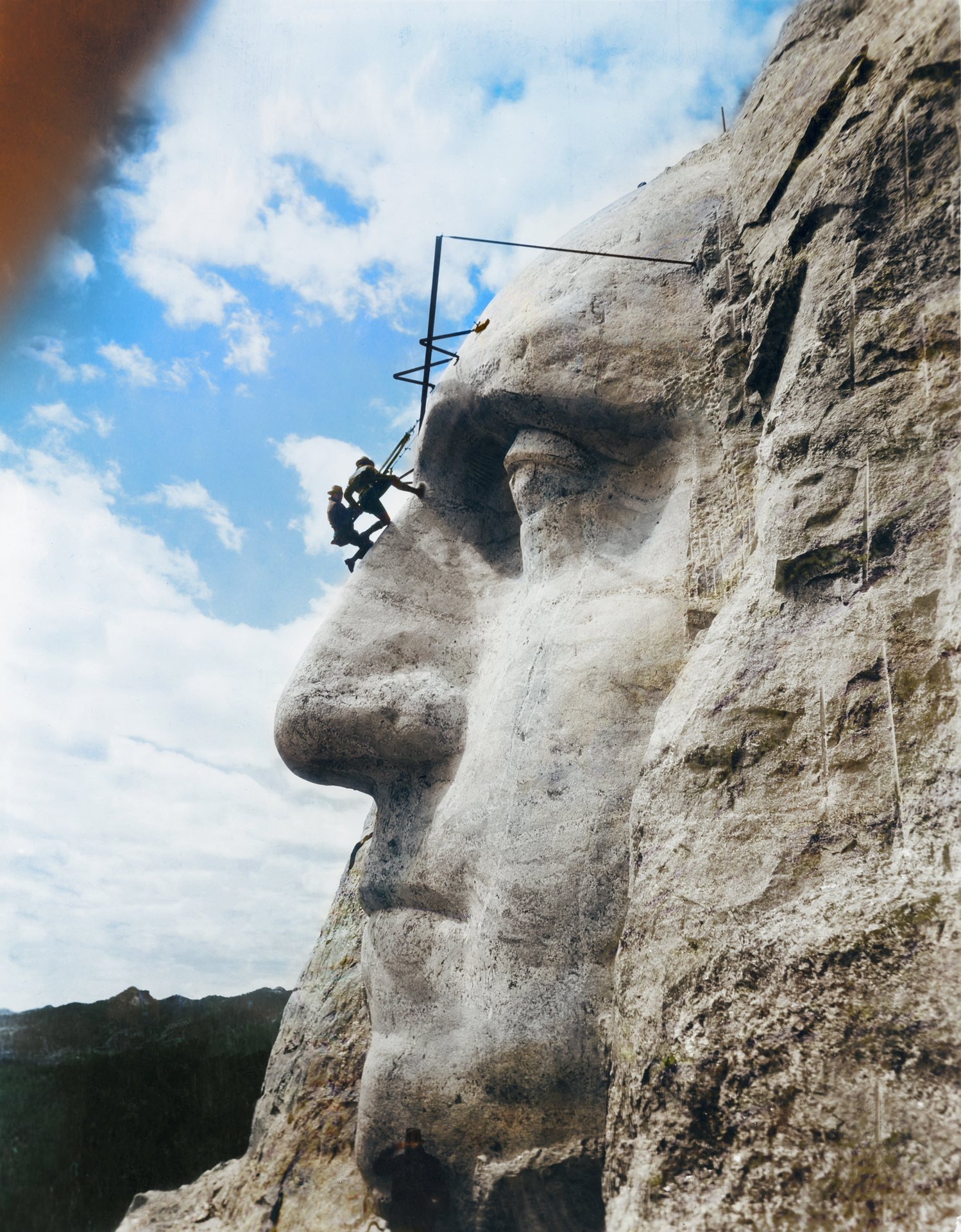
But in color, you might notice something in the upper left corner — it appears to be the photographer's finger near the lens! This tiny little human touch reminds us that real people took these photos, which would have been no easy task in those days.
You'll also see that the writing from the black-and-white version has been removed.
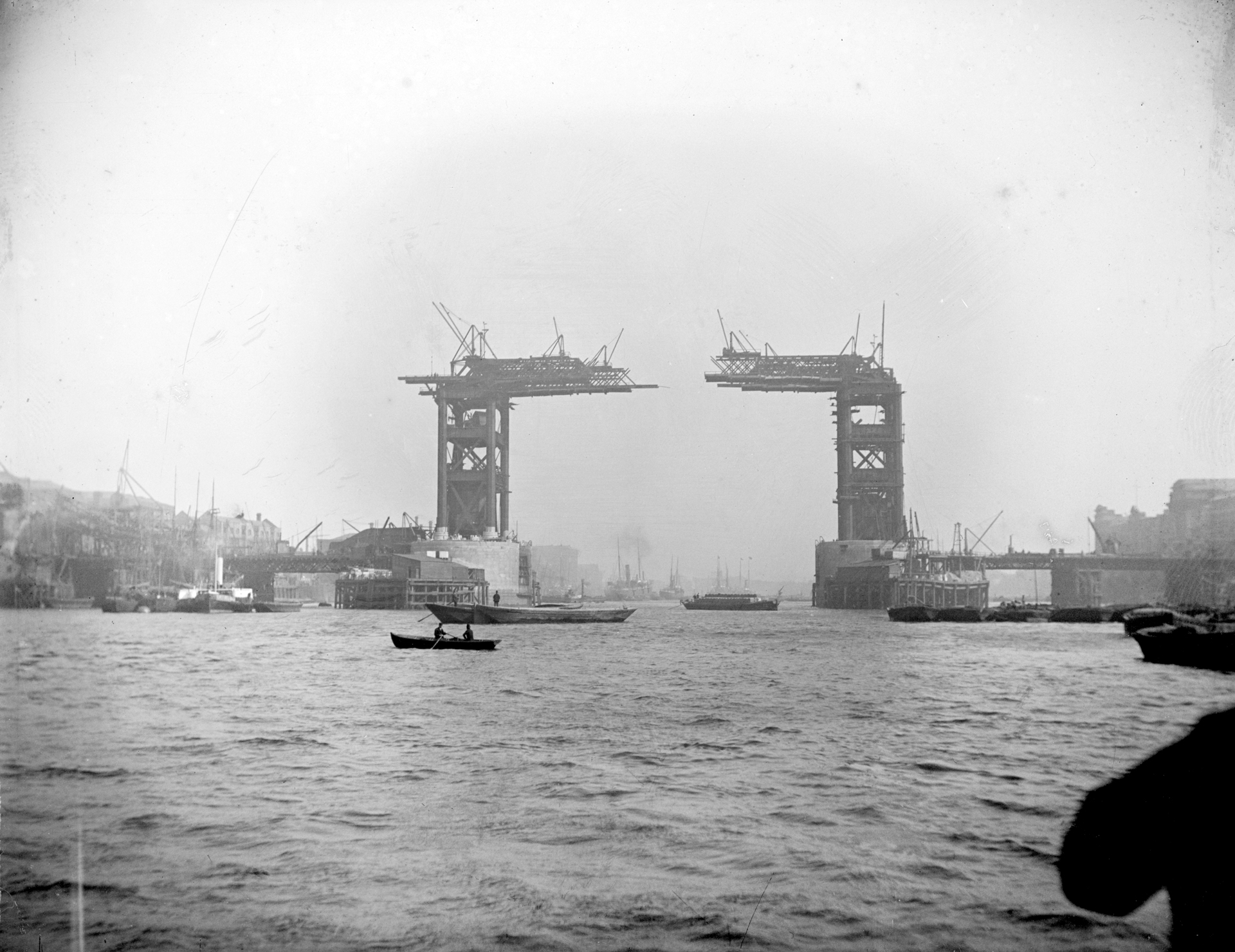
London's iconic Tower Bridge didn't start out looking the way it does now when it was being built in 1889.
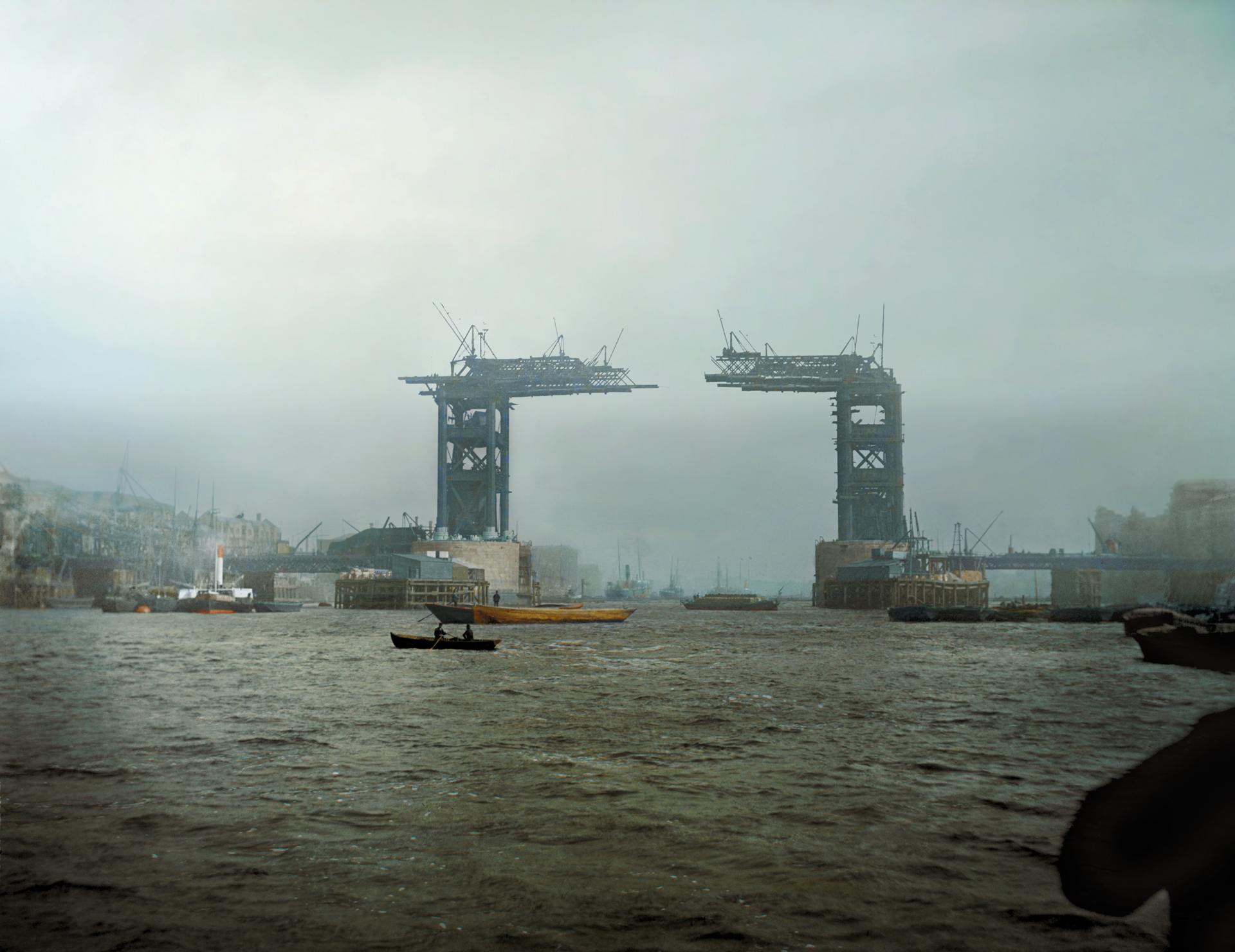
It gives us a glimpse of what people in the past might have seen as they traveled through the city, watching it change before their very eyes.
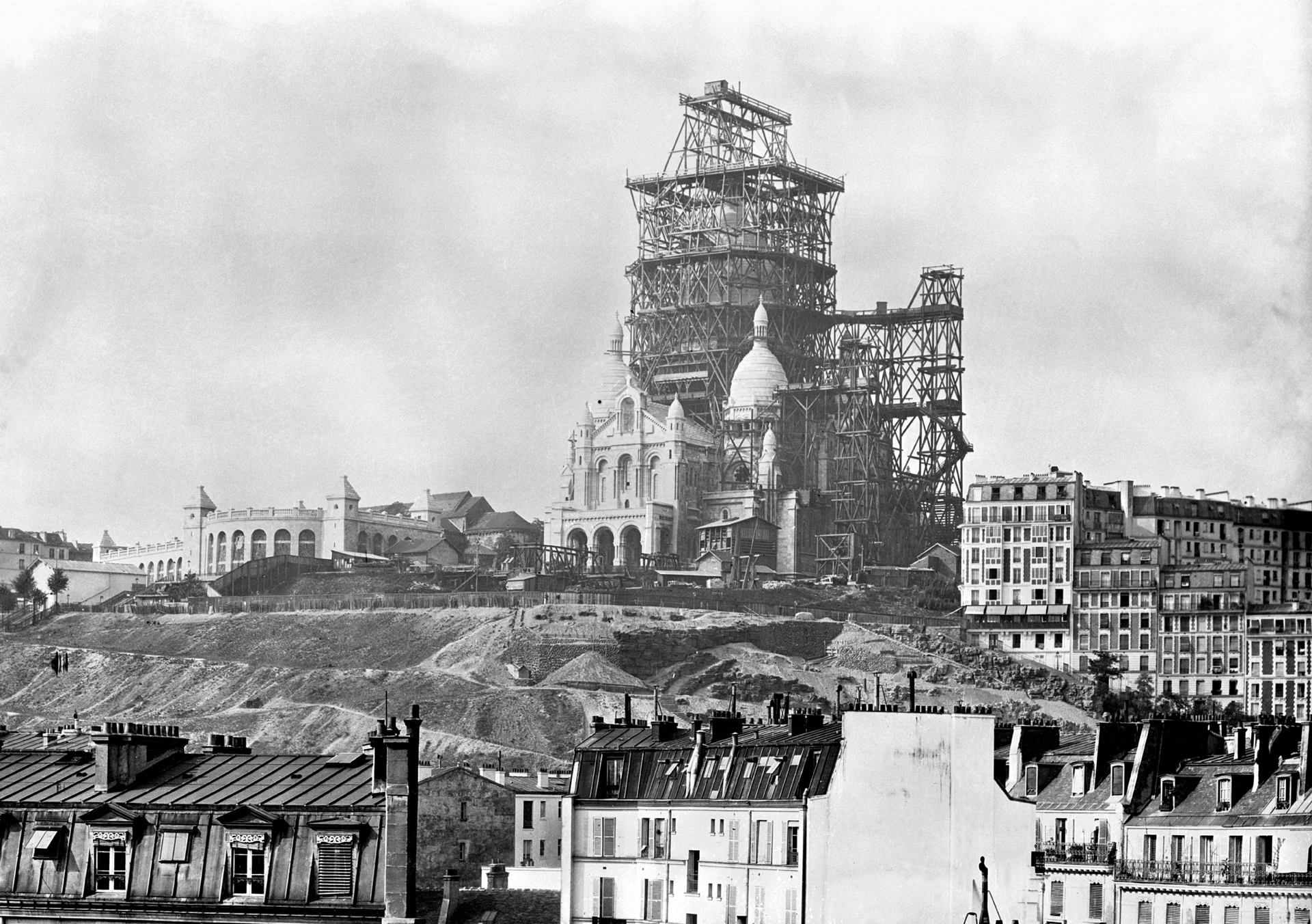
Landmarks that we take for granted today, like Paris' Sacre Coeur, were once brand new additions. While tourists flock to this church today as a classic attraction, in the 1880s, it was a new shape on the skyline.
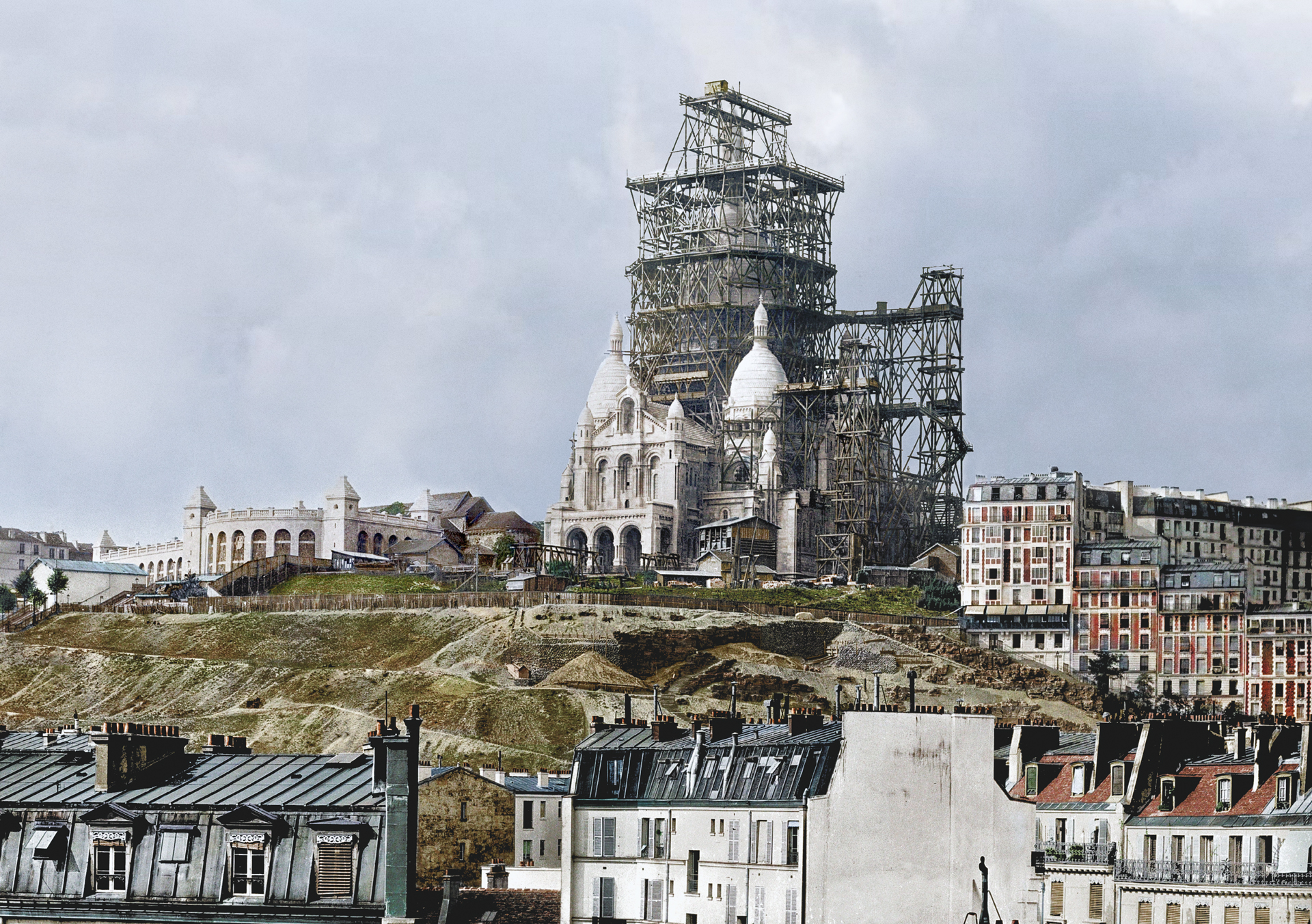
And in the their day, some structures, like the now-iconic Sacre Coeur, were actually very controversial.
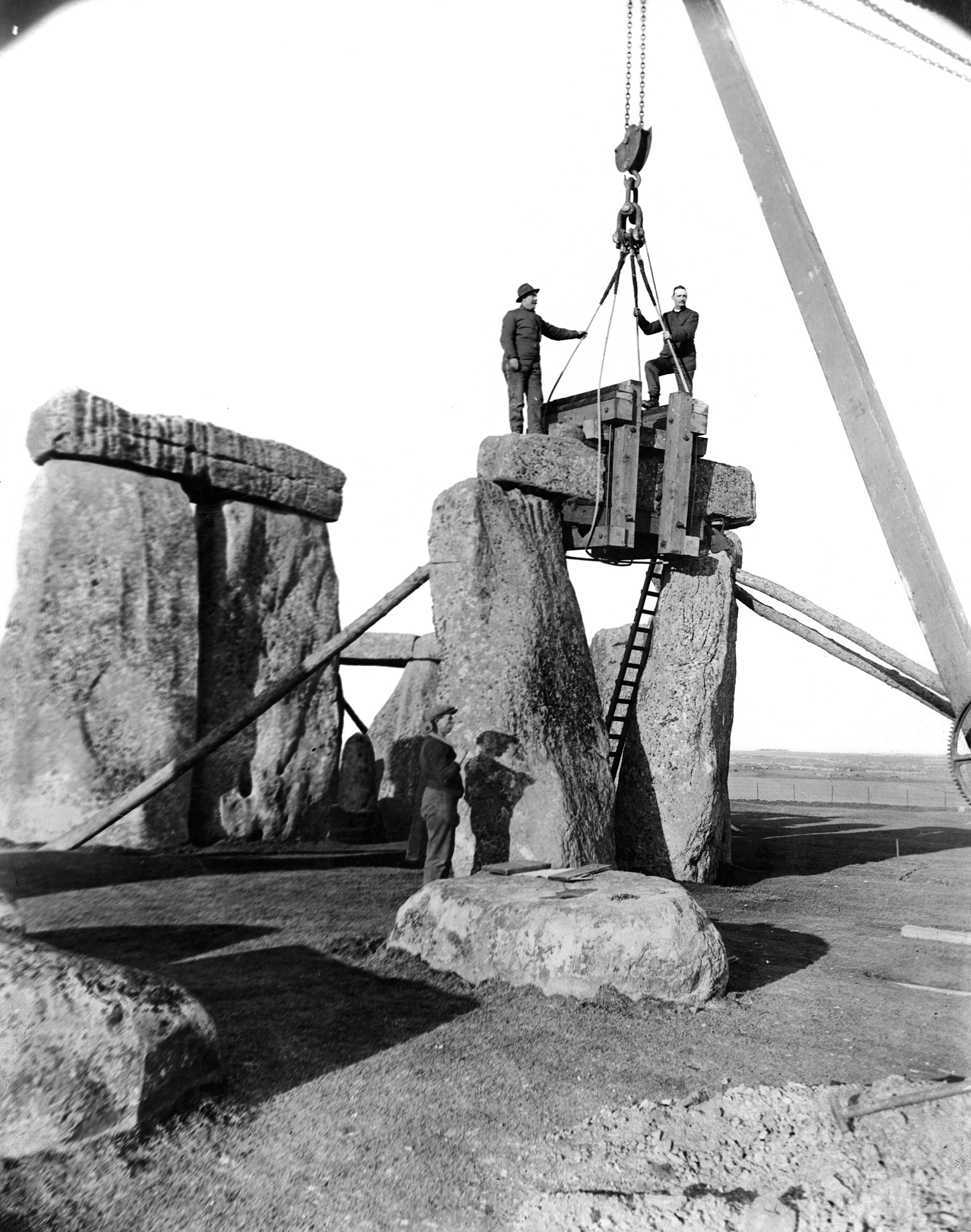
Other photos show monuments in times of change. Stonehenge was built some 5,000 years ago, but it has also had some help in more modern times.
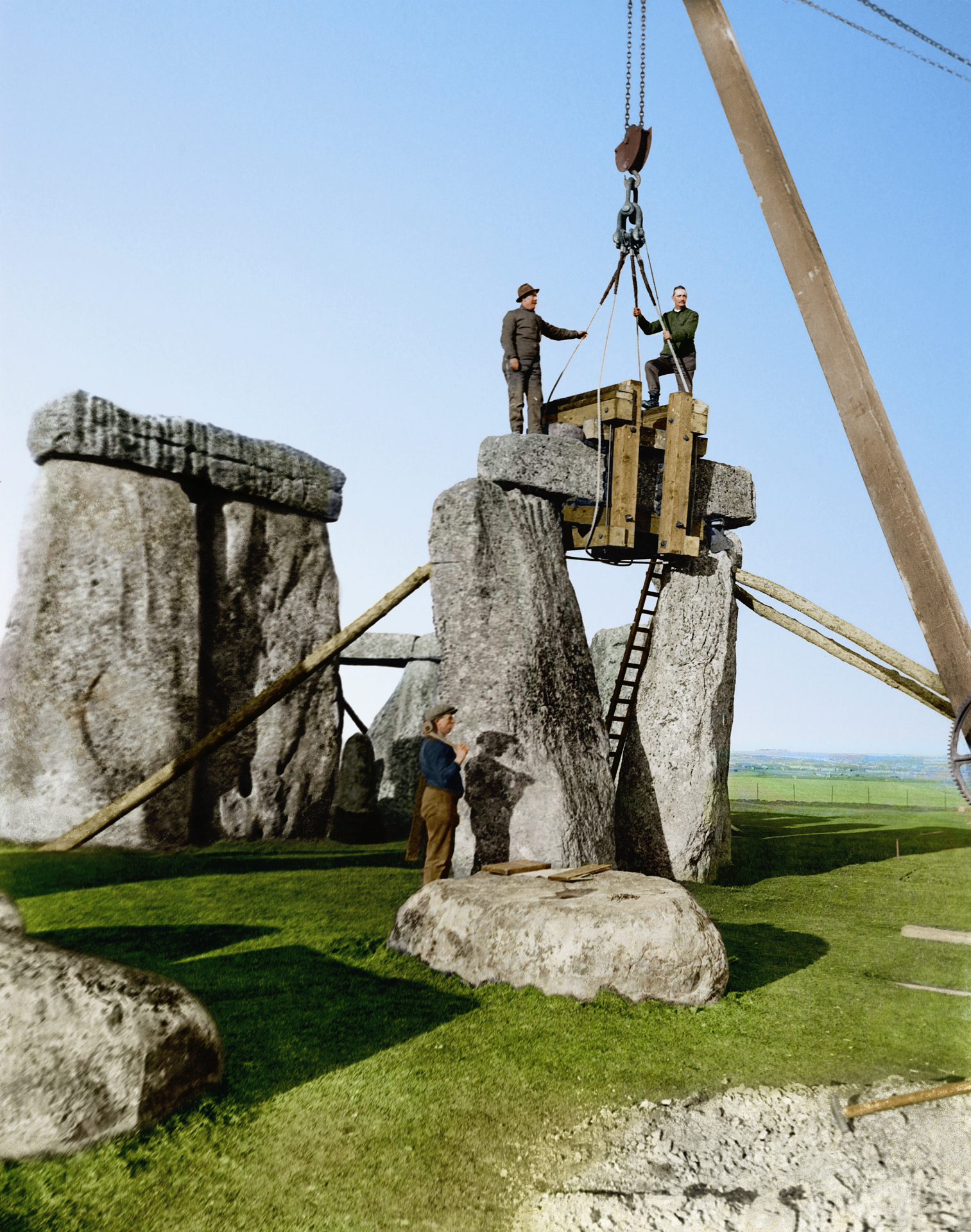
This photo from 1920 shows the massive stones being replaced by crane after having toppled over.
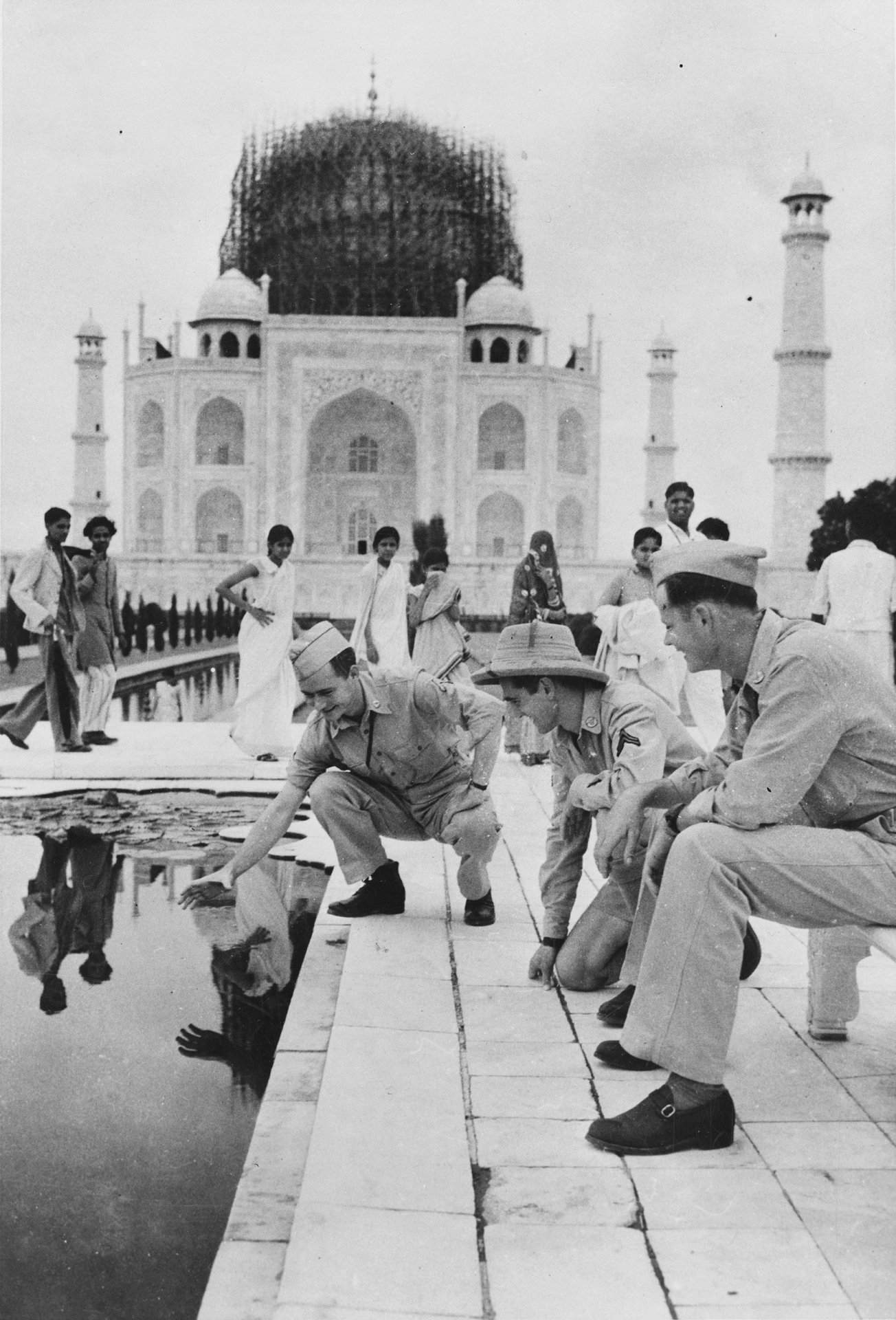
This 1942 photo of the Taj Mahal shows it not under construction (it was built in 1632), but rather in disguise.
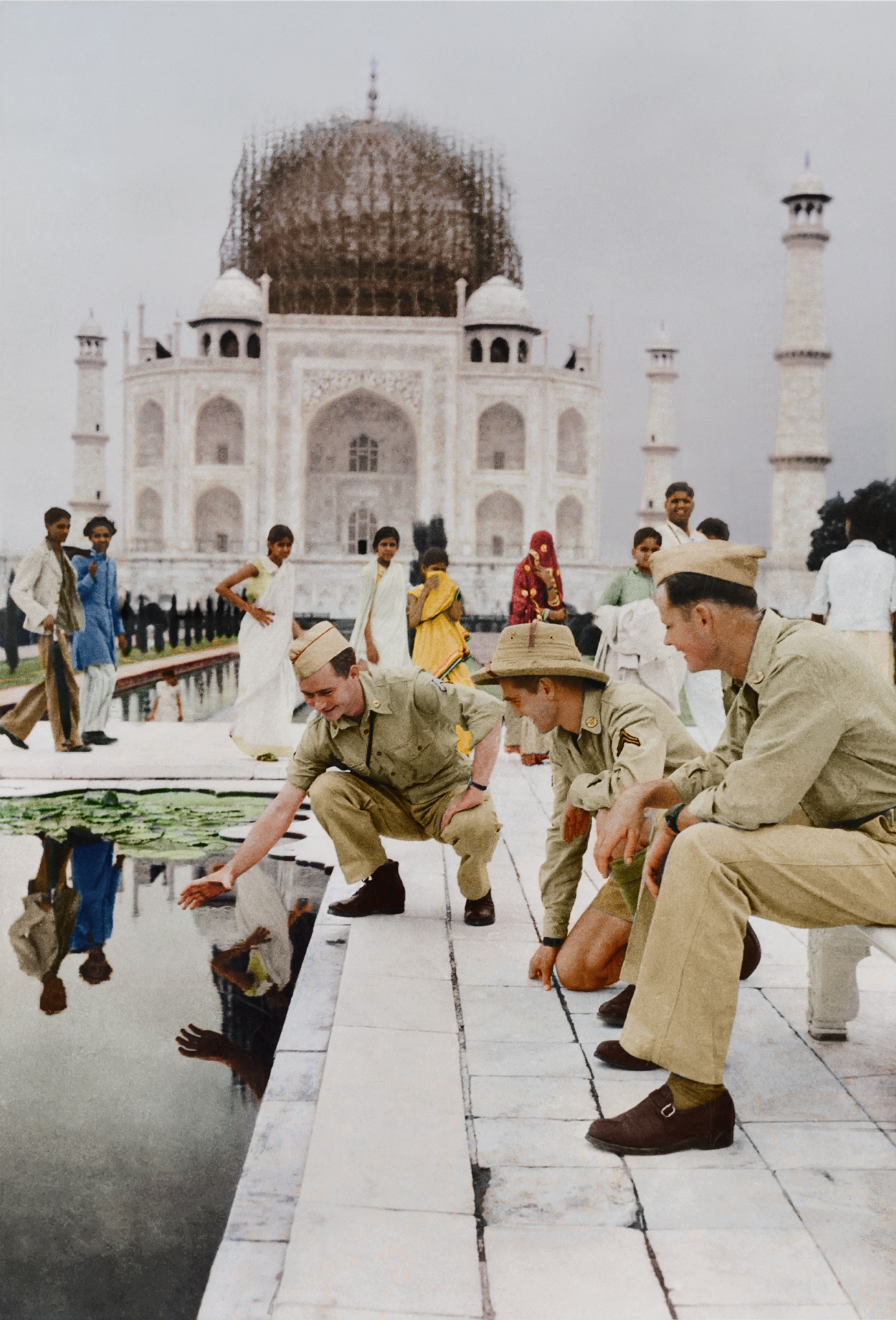
During World War II, its dome was obscured with wooden scaffolding to hide it from enemy bombers who might have used it as a target.
You can see more colorized images of history on Dynamichrome's website, as well as on their Instagram. You can also pre-order a copy of Paper Time Machine on their crowdfunding site.
And if you know anyone who loves history and wants to get a little closer to it, be sure to SHARE this incredible project with them!

